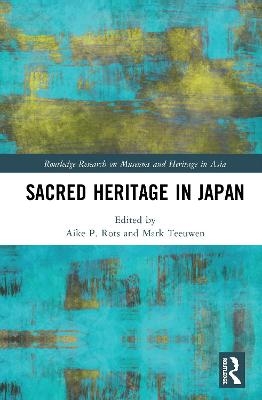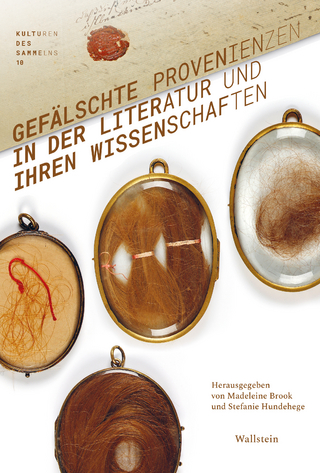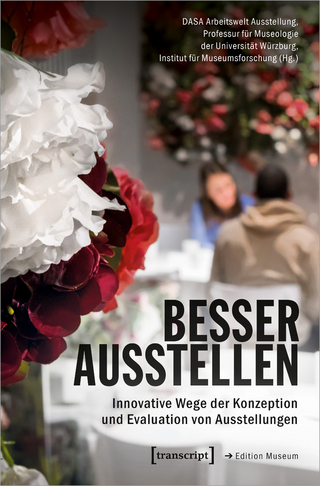
Sacred Heritage in Japan
Routledge (Verlag)
978-0-367-21770-9 (ISBN)
Sacred Heritage in Japan is the first volume to explicitly address the topics of Japanese religion and heritage preservation in connection with each other.
The book examines what happens when places of worship and ritual practices are rebranded as national culture. It also considers the impact of being designated tangible or intangible cultural properties and, more recently, as UNESCO World or Intangible Heritage. Drawing on primary ethnographic and historical research, the contributions to this volume show the variety of ways in which different actors have contributed to, negotiated, and at times resisted the transformation of religious traditions into heritage. They analyse the conflicts that emerge about questions of signification and authority during these processes of transformation. The book provides important new perspectives on the local implications of UNESCO listings in the Japanese context and showcases the diversity of "sacred heritage" in present-day Japan.
Combining perspectives from heritage studies, Japanese studies, religious studies, history, and social anthropology, the volume will be of interest to scholars and students who want to learn more about the diversity of local responses to heritage conservation in non-Western societies. It will also be of interest to scholars and students engaged in the study of Japanese religion, society, or cultural policies.
Aike P. Rots is Associate Professor of Asian Studies at the University of Oslo. His research interests include religion and the environment, ritual and sacred space, human–nature relations, and the politics of religion in contemporary East and Southeast Asia. Mark Teeuwen is Professor of Japanese Studies at the University of Oslo. His field of research is the history of religion in Japan.
Chapter 1 Heritage-Making and the Transformation of Religion in Modern Japan
Mark Teeuwen and Aike P. Rots
Chapter 2 The Politics of Japan’s Use of World Heritage: From Ratifying the World Heritage Convention to the Mozu–Furuichi Tumulus Clusters
Tze M. Loo
Chapter 3 An Introduction to Multilateral Heritage Politics: Japan and the World Heritage Convention
Herdis Hølleland
Chapter 4 World Cultural Heritage and Women’s Exclusion from Sacred Sites in Japan
Lindsey E. DeWitt
Chapter 5 Whose Sacred Site? Contesting World Heritage at Sēfa Utaki
Aike P. Rots
Chapter 6 What Does it Mean to Become UNESCO Intangible Cultural Heritage? The Case of aenokoto
Kikuchi Akira
Chapter 7 Kyoto’s Gion Float Parade as Heritage: Between Culture, Religion, and Faith
Mark Teeuwen
Chapter 8 The Story Beyond UNESCO: Local Buddhist Temples and the Heritage of Survival in Regional Japan
Paulina K. Kolata
Chapter 9 Omissions, Stratagems, and Dissent: The Shikoku Pilgrimage and the Problems of Applying for World Heritage Status
Ian Reader
| Erscheinungsdatum | 21.04.2020 |
|---|---|
| Reihe/Serie | Routledge Research on Museums and Heritage in Asia |
| Zusatzinfo | 4 Line drawings, black and white; 21 Halftones, black and white; 25 Illustrations, black and white |
| Verlagsort | London |
| Sprache | englisch |
| Maße | 156 x 234 mm |
| Gewicht | 620 g |
| Themenwelt | Kunst / Musik / Theater |
| Geisteswissenschaften ► Geschichte ► Hilfswissenschaften | |
| Geisteswissenschaften ► Geschichte ► Regional- / Ländergeschichte | |
| Geisteswissenschaften ► Religion / Theologie ► Weitere Religionen | |
| ISBN-10 | 0-367-21770-8 / 0367217708 |
| ISBN-13 | 978-0-367-21770-9 / 9780367217709 |
| Zustand | Neuware |
| Informationen gemäß Produktsicherheitsverordnung (GPSR) | |
| Haben Sie eine Frage zum Produkt? |
aus dem Bereich


